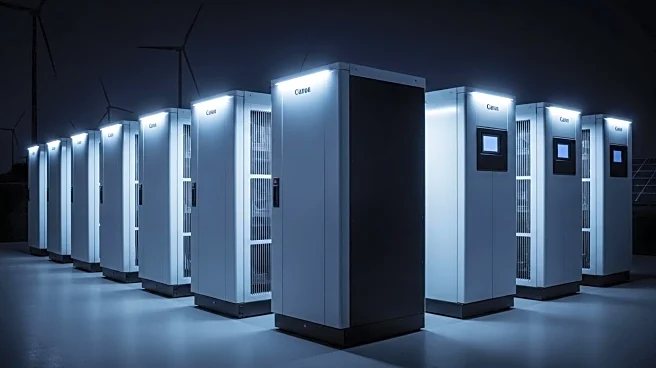What's Happening?
Battery energy storage systems (BESS) are increasingly being deployed worldwide to support the shift to renewable energy sources like solar and wind. These systems store electricity generated from renewables for later use, helping to balance supply and demand. However, concerns have been raised about the safety of these installations, particularly their vulnerability to fires. Recent incidents in California and the UK have highlighted the risks, with fires taking hours to extinguish and leading to evacuations. Critics argue that the placement of these facilities near residential areas poses significant safety hazards.
Why It's Important?
The expansion of BESS is crucial for achieving net-zero emissions targets by enabling the effective use of renewable energy. However, the potential fire risks associated with these systems could hinder their adoption and pose safety threats to nearby communities. Addressing these concerns is essential to ensure public safety and maintain the momentum towards a sustainable energy future. The debate also underscores the need for robust safety standards and community engagement in the planning and deployment of such facilities.
What's Next?
As the demand for BESS grows, stakeholders, including policymakers, industry leaders, and local communities, must collaborate to develop and implement comprehensive safety measures. This includes improving fire prevention and response strategies, enhancing facility design, and ensuring transparent communication with affected communities. Ongoing research and technological advancements may also play a role in mitigating these risks.










